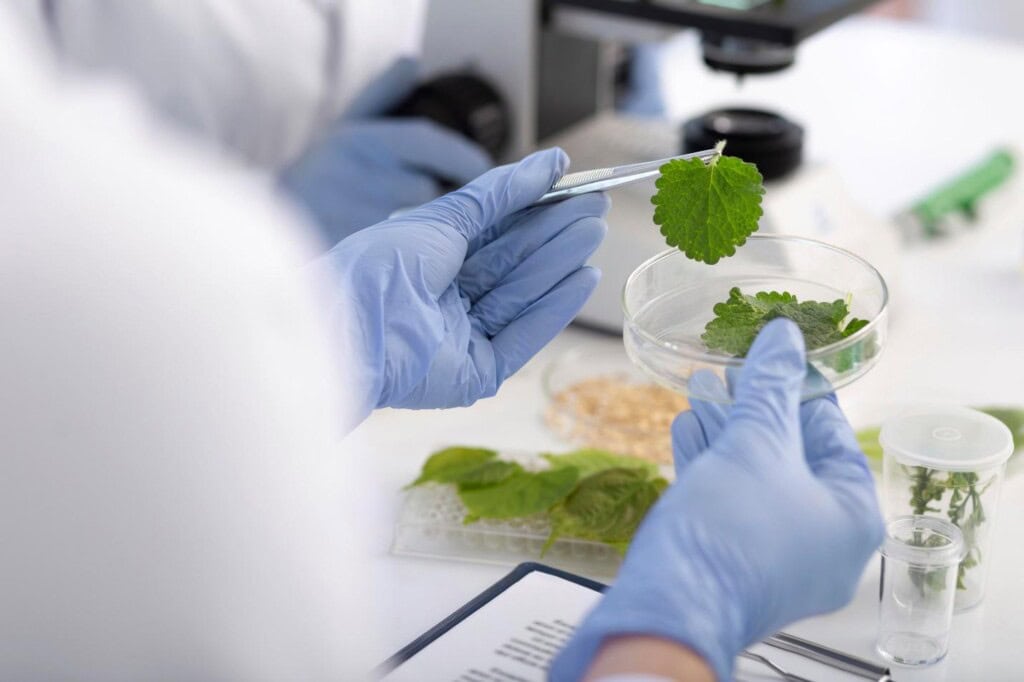Spectroscopy studies the absorption of light and other radiation. This science uses spectrometers to discover more about the properties and structure of matter. Spectroscopy is highly used in numerous industries, as they need to offer quality products. The good news is that spectrometers can help in this regard. The most common roles of spectroscopy are purity testing, quality control, monitoring the reaction processes, testing materials, and analyzing structures.
Because of these applications, spectroscopy has been adopted in many industries. It can reshape their operations and help them always offer the best to customers. In this article, we will discover some of the sectors where spectroscopy and spectrometers are used. Keep reading to learn more.

Agriculture and food
Spectroscopy can significantly enhance the agriculture and food industry by bringing more efficiency, better safety, and higher quality. In agriculture, spectroscopy can be integrated to provide access to better measurements and plant monitoring. A spectrometer is a tool used in spectroscopy that can play a lot of roles in agriculture. For instance, it can detect chlorophyll levels, sugar measurements in fruits, and radiometric light levels. With this approach, the agriculture industry can improve what it is currently offering to individuals and enhance plant health to a great extent.
Besides agriculture, spectroscopy can be used in the food industry as well, where this science has various applications. For example, it can help with fruit sorting and the sugar levels. Other than this, spectroscopy can also be used for dairy product characterization, where this science can check the components in milk and look for fats, proteins, water content, minerals, carbohydrates, and so on.
Medicine
Spectroscopy can also be used in medicine for clinical and research purposes. In this industry, spectrometers from https://www.avantes.com/ can measure the ultraviolet wavelength to have access to accurate and reliable information. Spectrometers in medicine can be used in plenty of operations, such as blood analysis, tissue fluorescence, endoscopy, phototherapy, capillary electrophoresis, and so on.
For example, in blood analysis (co-oximetry), spectroscopy measures blood gas parameters. In this way, medical entities can determine the total deoxyhemoglobin, oxyhemoglobin, hemoglobin, bilirubin, methemoglobin, and carboxyhemoglobin. Then, co-oximetry measures the oxygen saturation in the blood.
Spectroscopy can also be helpful in endoscopy, a process in which individuals check their upper gastrointestinal tract. To gain more insights and better images to make a diagnosis, the medical specialist who performs endoscopy can integrate spectroscopy to improve the details discovered and facilitate the measurements and processes needed in this procedure.
Environment
Unfortunately, our negative impact on the environment has already started to become more present than ever, which is why we must look for solutions to minimize our effects. The environment is the victim of all our reckless decisions, where natural habitats and entire ecosystems are endangered by climate change, industrialization, population growth, and urbanization. So, now we must all unite our forces with scientists, researchers, companies, and governments to try to make things better and maintain a place where we can continue to live.
The good news is that spectroscopy can help us combat environmental challenges and offer solutions that protect the world in which we live. For instance, spectroscopy can help with contamination monitoring and detect something that poses a challenge to the soil, water, or air. Spectroscopy identifies pollutants and determines their quantity. Many types of spectroscopy are suitable for contamination monitoring, including fluorescence spectroscopy, Raman spectroscopy, absorbance spectroscopy, and laser-induced breakdown spectroscopy.
Spectroscopy also helps with recycling, a process that all individuals and companies should consider to improve waste management. Plus, we now have everything to recycle correctly and automate many of the practices in this industry. We no longer need to separate and store recycled materials by hand, as we can also use near-infrared (NIR) spectroscopy to enhance the recycling industry’s operations.
Plastic has the most significant environmental impact. Luckily, near-infrared spectroscopy allows recycling centers to classify plastic materials better.
Solar energy
Spectroscopy can also be very helpful in revolutionizing solar energy. The sun is the main source of energy on our planet, and now it is regarded as a good renewable energy source. With this approach, we can reduce the negative impact of our actions on the world and have something to apply to our growing energy needs. Spectroscopy can help in the production of solar panels through solar measurement.
Chemistry
Spectroscopy can also help the chemistry industry a lot. The most helpful fields of spectroscopy for the chemistry sector are Raman spectroscopy and fluorescence spectroscopy. Raman spectroscopy can be beneficial for monitoring different reactions and product identification. For instance, it can monitor the changes that occur in the molecular bond structure. Then, fluorescence spectroscopy studies the behavior of chemical compounds. This technique is also helpful for other environmental applications, biological fields, and biochemical processes.
Last remarks
Spectroscopy is a science with many applications in our everyday lives. It can enhance the operations of various fields and help them revolutionize themselves to new heights that no one expected. For instance, spectroscopy is encouraged in structure analyses, purity testing, material testing, quality control, and reaction processes. The spectrometer, an essential tool in spectroscopy, makes this possible.
As we have seen above, many industries can take advantage of this science’s benefits and significantly improve their operations. Additionally, spectroscopy can solve some of the pressing issues we are currently dealing with and bring solutions to these problems. This is why spectroscopy has increased in popularity and will probably continue to be even more adopted across a wide variety of sectors and disciplines.
Do you know of any other industries that use spectroscopy? If so, which one? Additionally, do you believe in the importance of spectroscopy? Please let us know in the comments section.




